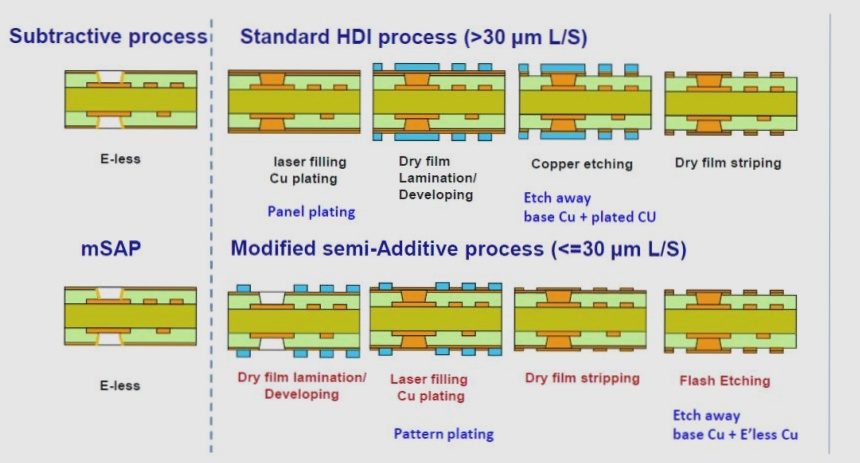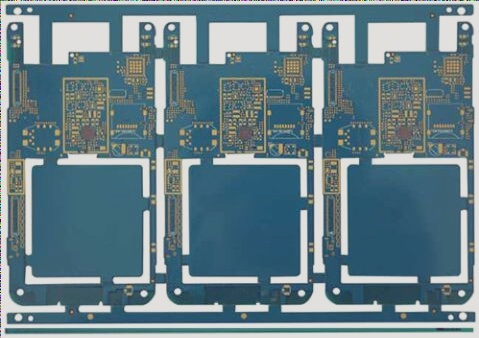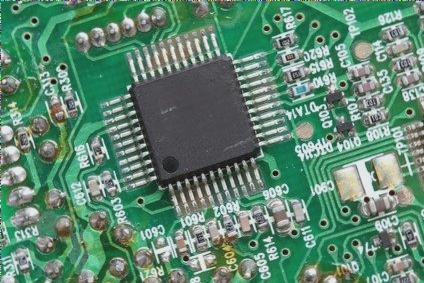
Those who are familiar with the term PCB or printed circuit board must have heard about different electronic component packages used in shaping PCBs. Among them, PLCC is one of the less commonly used integrated circuit options that offers significant benefits in prototype PCB assembly.
If you’re interested in understanding what a PLCC is, its benefits, and the differences between PLCC and LCC packages, this guide will be immensely helpful. So, let’s dive into it without further delay.
PLCC stands for Plastic Leaded Chip Carrier, which is a four-sided ‘J’-leaded surface mount device typically colored green. It is an SMD IC package configuration that supports both direct soldering onto the PCB and socket mounting. Essentially, PLCC facilitates the attachment of integrated circuits to PCBs via these methods. Typically, ICs are housed within rectangular or square-shaped PLCCs.
In terms of its design, PLCCs come in rectangular or square shapes, both invented around the same time, with the square shape slightly older. Both shapes are widely used today to meet diverse user needs. It’s important to note the thermal dissipation capability of your chosen PLCC, as most look alike but differ in this critical aspect.
PLCCs are favored for their cost-effectiveness compared to expensive ceramic leaded chip carriers (CLCC). The distinctive ‘J’ shape simplifies soldering or socket mounting, enabling easy replacement without PCB replacement if damaged or removed. In contrast, other wing-shaped carriers are less compatible than the ‘J’-shaped PLCC, making it the preferred choice worldwide.
In summary, this provides an overview of PLCCs. For more detailed information, read on.
In the realm of electronics, a chip carrier is an essential component of any circuit board, appearing in various shapes, sizes, and configurations. Some, like PLCCs, are ‘J’-shaped, while others, like QFPs, are gull-winged. Similarly, some are leaded (like PLCCs), while others lack leads, known as Leadless Chip Carriers or LCCs.
LCC is a newer type of plastic chip carrier that lacks leads, unlike PLCCs. It features a ceramic base with castellations or pads on its sides and bottom, with pads on all four sides. Instead of leads, LCCs employ pins made of metal or ceramic.
As previously mentioned, PLCCs offer numerous benefits that set them apart from other chip carriers, from their construction to their cost-effectiveness, making them the most widely used package on the market. Let’s explore some of the benefits of using PLCC component packages.
**Benefits of PLCC Packages:**
1. **’J’ Shape:** The unique ‘J’ shape of PLCC packages saves space and is more efficient compared to other package types. Unlike gull-wing leads found in Quad Flat Packages, PLCC leads fold inward, minimizing potential damage. Should PLCC leads become damaged, only the PLCC needs replacement, not the entire PCB.
2. **Attachment Options:** PLCCs can be attached to PCBs via traditional soldering or rapidly mounted in sockets, offering flexibility depending on the application. For instance, when dealing with a PLD chip, pre-programming before attachment allows for easier error identification and troubleshooting.
3. **Chip Protection:** PLCCs securely house chips within sockets, protecting them from direct heat during soldering when integrated directly into the circuit board.
4. **Cost-Effectiveness:** PLCC packages are affordable compared to ceramic leadless chip carriers, offering a sustainable alternative.
**PLCC vs LCC Package:**
While PLCCs and LCCs share similarities in shape and size, they differ significantly:
– **Leaded vs. Leadless:** PLCCs feature leads, whereas LCCs do not, employing pins or pads instead.
– **Versatility:** LCCs are more versatile due to their portable nature, supporting easier mounting and dismounting compared to soldered PLCCs.
– **Attachment Methods:** PLCCs support both soldering and socket mounting, while LCCs exclusively use surface mounting due to their leadless design.
With this comprehensive understanding of Plastic Leaded Chip Carriers (PLCCs), choosing the right package for your PCB project becomes straightforward. Contact experienced PLCC service providers to ensure accurate, safe, and professional assistance tailored to your needs. We prioritize customer requirements and uphold high standards of professionalism, making us your reliable partner for PLCC solutions. Feel free to reach out for guidance on PLCCs or related services at your convenience.




